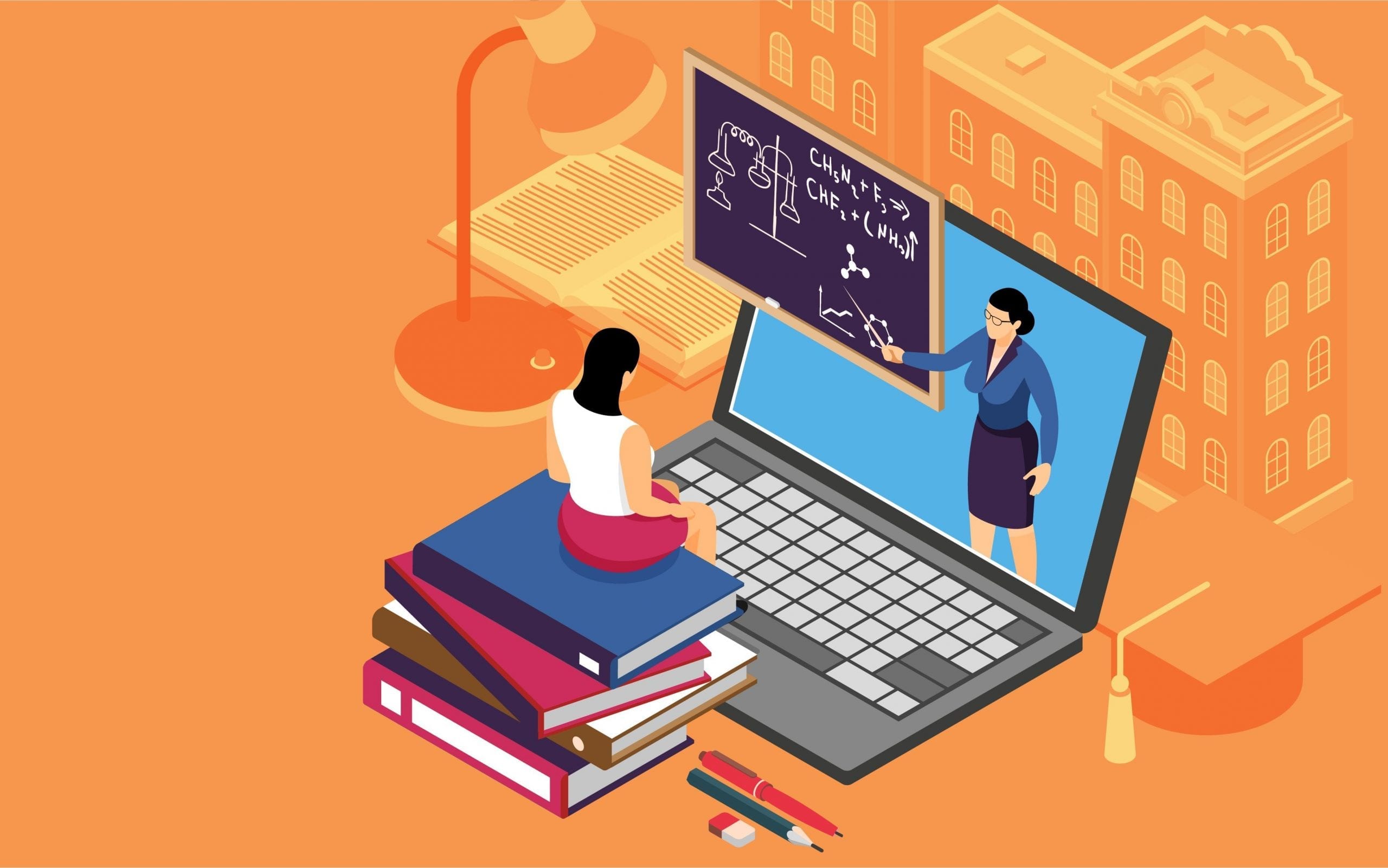There is a lot of discussion over how beneficial online education is compared to traditional schooling. Furthermore, a small percentage of people believe that in-person education is the sole option and do not give online education its due credit. There is little doubt that online education has become a reality around the world, and that it has accelerated as a result of the pandemic. It appeared as a glimmer of hope in the gloom, offering a solution to the difficulties that arose suddenly as a result of the pandemic. Regardless of how the wave of online education began, it is here to stay, and it will continue to develop in complexity day by day.
Learning has always been a side effect of online education, no matter how you look at it. Despite the dispute, no light has been given on how online learning and education are contingent processes. In terms of learning, the cumulative effect of online education is similar to a domino effect. The effects of online education on students’ actual learning processes are the criterion that we need to address right now. Furthermore, how might online education be used to support learning? Beyond the pros and cons debate, the following tips will provide you with further information:
- One of the most important aspects of e-learning is its flexibility. It gives pupils a lot of flexibility in terms of planning their actual study time according to their own schedules or even when they wish. This flexibility puts pupils in their comfort zone right away, allowing them to study more effectively.
- Because of the advent of online education, accessibility has improved significantly. Students can access e-learning regardless of where they are or when they want to learn. For pupils who are restricted by the rigidity of the old education system, this chance becomes a significant gift. This ease of accessibility has been made possible by technology, and it is now at the fingertips of pupils.
- One of the reasons why e-learning has become a more accessible and significant option of education than traditional classroom learning is the lower financial obligation of educational costs compared to traditional education expenditures.
- Online education places pupils in a self-responsibility mindset when it comes to studying. It necessitates pupils’ self-motivation and self-discipline. Unlike in a classroom, students are responsible for their own learning, course work, assignments, completing deadlines, and tracking goals, allowing them to become autonomous learners while honing their analytical skills. Students recognize the value of time management and self-direction in their work. Classroom mares become autonomous learners through online education.
- A tool for quickly adapting to changing educational trends. One of the challenges of the twenty-first century is its ever-changing character, which has a direct impact on which skills are sought after and which are obsolete. Skills that were valued a few years ago are no longer relevant, and new skill sets emerge on a daily basis. Our generation must be prepared to access, learn, and grasp these skills more quickly. This is where e-learning comes in helpful, as it works in tandem to implement and make these new abilities available to learners as quickly as feasible. Because it is speedier than the traditional educational system, online education is the key to staying current with the latest innovations.
- Effective learning is a primary benefit of online education, thanks to technical assistance such as movies, animations, visual hints, and sensory content. They lay the route for the student’s effective learning. It helps students understand tough or complex topics that require in-depth study or a distinct learning strategy. Rather than relying on a single method of information transmission to the learner, numerous sensory elements are used to assist pupils to understand and learn more effectively.
- The ability of artificial AI to alter online education course material is incredibly advantageous to students because it takes into consideration the pace that students demand and adapts it optimally to tailor the content if necessary to meet their needs. These AI and algorithm technologies diagnose the student’s difficulty and attempt to comprehend and moderate the issue, alleviating the classroom issue of tempo adjustment for a bigger student audience. It effectively improves the quality of learning.
Even top-tier colleges like Harvard, MIT, and Stanford are using online courses to make learning more accessible to students, indicating that they believe online education has a long-term future. Moreover, a number of schools, both international and domestic, have adopted online education as a supplement to traditional education, and this trend is expected to continue. E-learning, according to those in the education business, isn’t just a passing fad; it’s here to stay and develop!
Previous Articles








